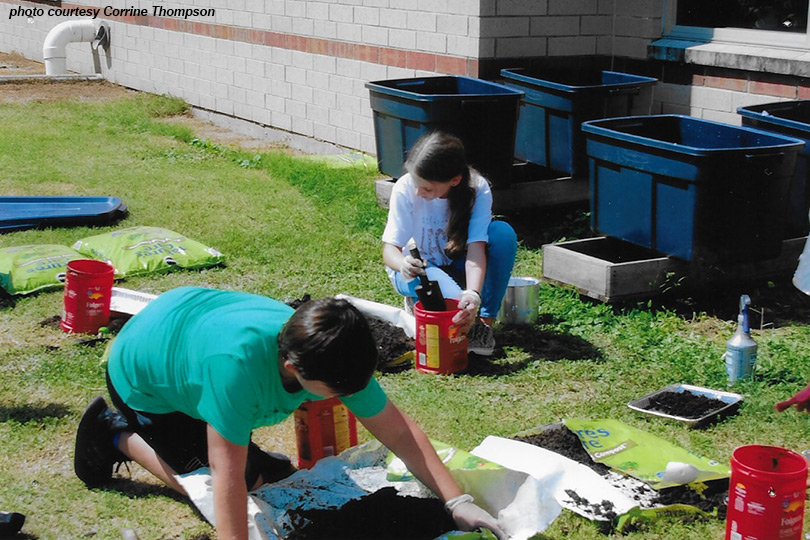By Jennifer Dorsett
Field Editor
Thanks to about 2,000 wriggling worms and Texas Farm Bureau’s (TFB) Clover Cash grant program, students at Mildred Elementary School in Navarro County are digging into vermiculture, soil science and food production systems.
A group of seven students in third through fifth grade are feeding the worms food waste and paper products, which the worms then break down into a natural fertilizer that can be used to grow more food.
Their teacher, Corrine Thompson, raised worms at her home and used the resulting vermicast, or worm castings, in her vegetable garden last summer with good results. So, she thought raising worms would be a great hands-on project for students to learn more about agricultural concepts such as food production and soil and plant health.
Her diligence in applying for grants like TFB’s Clover Cash grant program made the project possible.
“I’m constantly looking for grants because I teach gifted and talented (GT) classes, and we have a small budget for GT activities. We don’t have lots of money to do lots of different things. So, the more grants I receive, the more the kids get to do,” Thompson said. “When I saw the Clover Cash opportunity come up, I applied and had the kids do the research on what to feed worms, what kind of care they would need and how vermiculture works. After we received the grant, we bought 30-gallon plastic bins, compost, garden tools, rubber gloves—all of the incidentals we needed to get the project off the ground.”
Now, each student is responsible for the care of his or her own bin of worms.
There is a cooler outside Thompson’s classroom where faculty, staff and other students donate leftovers and food that would otherwise be thrown away. The students check the cooler each morning, categorize the contents and freeze any excess food for the weeks or days when they may be out of school.
“They feed the worms every Friday. We set out all the food from the week, and they go around and select what they want their worms to eat,” Thompson said. “When they feed them, the kids take notes about their appearance and size, whether they look healthy and active, and they document what the worms didn’t eat from the week before. The kids try to give them greens, and they’ve discovered, just like themselves, the worms seem to prefer fruit more than vegetables. And they don’t really like carrots, which the kids think is sort of funny.”
Thompson noted worms can digest paper products, too. So, the Corsicana Daily Sun donates unsold newspapers to the project, which the kids then shred and use to supplement the worms’ diets.
At the end of the school year, the students will hand out two-gallon bags of worm castings to community members for use in their gardens.
“It’s been an amazing project, and the kids just love it,” Thompson said. “They keep a journal and write about what they’ve learned, and we’ve been taking lots of pictures for our report due to TFB in December documenting the experience. We’ve already had so many people ask us to put their name on the list for when we start handing out the worm castings, so we think it’s been a successful project.”

